 Richard Dix is best remembered today, if at all, as the star of Academy Award winning Best Picture Cimarron (1931), generally considered one of the weakest Best Picture winners in Oscar history. Prior to Cimarron he gathered several major silent film credits, most notably The Vanishing American (1925), but while you and I may be different, most modern movie fans will not stop to celebrate the silents. Unfair, but they are antiques to most and, to be completely honest, I wish I took the time to watch more than I do.
Richard Dix is best remembered today, if at all, as the star of Academy Award winning Best Picture Cimarron (1931), generally considered one of the weakest Best Picture winners in Oscar history. Prior to Cimarron he gathered several major silent film credits, most notably The Vanishing American (1925), but while you and I may be different, most modern movie fans will not stop to celebrate the silents. Unfair, but they are antiques to most and, to be completely honest, I wish I took the time to watch more than I do.
One recent break for Dix has come in piggybacking the celebration of Val Lewton through his acclaimed performance as the mad sea captain in the Lewton produced B-movie The Ghost Ship (1943). Personally, most of Lewton’s films bore me to tears and I’d rather Dix be recalled for the similarly dark, moody and suspenseful Whistler series of movies that he starred in for Columbia just after The Ghost Ship at RKO. They’re not as intense, but they are solid, unconventional mysteries that move at a pace that will hold anyone’s interest.
But there is an entirely different group of earlier RKO titles that I think make Richard Dix ripe for rediscovery. They came soon after the critical success (and financial failure) of Cimarron, when RKO signed Dix to a long-term contract that paid him $50,000 per film plus 12-1/2% of net to star in five films per year (Van Neste 170). It was on this contract he starred in several of my favorite Richard Dix movies, titles such as The Lost Squadron, Roar of the Dragon, Hell’s Highway, The Conquerors (all 1932), Ace of Aces (1933) and the latest addition to my growing list of Dix favorites, His Greatest Gamble (1934).
Those last two titles, Ace of Aces and His Greatest Gamble, are among the five titles starring Richard Dix that have been released as Made on Demand DVD-Rs by Warner Archive within the past few weeks. I’ve requested review copies of each and will be covering all five over the next couple of months. I decided to begin with His Greatest Gamble because it was one of two of those new releases that I had yet to see (the other being Men Against the Sky, which I’ll post about after Ace of Aces).
Starring Dix as free-spirit Phillip Eden, who works to pass his carefree love of life to daughter Alice, His Greatest Gamble offers Dix the most dramatic role I’ve yet to encounter him in. Coming in the era of so many films of mother love this was a touching tale of father love that sees Dix do his all to rescue his daughter from her mother who has created a life so stifling that the young woman comes to believe she has lost use of her legs.
The movie opens with Dix’s Phillip losing big at a Monte Carlo roulette wheel. He’s joined by another hard-luck gambler as he retrieves his coat and remarks, “Win or lose doesn’t matter. It only matters how a man feels. I feel great.”
“You must have won,” says the other man.
“Won or lost everything,” says Phillip, chuckling.
“You’re footloose I suppose,” the other man suggests. “If you had obligations like I have–”
“Obligations,” Phillip replies, all the required punctuation coming when a little girl is passed into his arms. It’s his daughter, Alice, played as a child by Edith Fellows, who won universal acclaim from period critics for her performance during the key first twenty minutes of His Greatest Gamble.Back at their shabby rooms Phillip explains to his daughter that they’re now “poor as church mice” and offers leftovers for dinner. While preparing that dinner Phillip is surprised by a visit from ex-flame Bernice (Shirley Grey), who has come hoping to get back together with Phillip but also to deliver the news that she has told his ex-wife where to find him and his daughter. Bernice has squealed partially out of spite, partially out of concern for Alice’s well-being.
“I’m trying to teach her how to live,” Phillip explains to Bernice about his having taken Alice. “Maybe I’m not the best influence, but with me she’ll see some of the beauty of the world and very little that’s dull and stupid about it.”
His back to the wall, Phillip creates an opportunity to bind Bernice to a chair, gag her and rob her purse before cheerily escorting Alice away from the scene without the little girl ever noticing the bound woman struggling in dark background. In his rush to escape the imminent arrival of his ex-wife, Phillip forgets to turn off those leftovers he was preparing for Alice. The pot boils over onto the flame leaving poor Bernice trapped in a room now filling with gas.
Once a safe distance from Monte Carlo, Phillip and Alice stop for a much better meal that is served up by Paul Porcasi, working just this single scene in a bit role. During this dinner Alice spills a glass of water and the trauma she suffers bracing for the inevitable punishment offers us an idea as to why she is so keen to remain away from her mother and in the care of her recklessly irresponsible, but eminently charming, father. He laughs over the spilled glass as she begs not to be sent to bed. “What do we care about that?” he asks.
“Now here. Just to prove that we’re going to do as we please. You see this lovely glass of water? Now this musty old world says it isn’t nice to spill it. And you and I answer—” He knocks his own glass over and Alice gasps. “Well, fancy that,” he says. “Is it fun? Come on, laugh Alice. Laugh. It’s a joke on the world. Our joke.”
Arriving safely in Paris, Phillip scores big at roulette but when he returns to the hotel to tell Alice the good news he is met in his room by the police. They are unsympathetic in explaining that he is wanted for the murder of Bernice. Alice cries out to him from above and Phillip next encounters his ex-wife, Florence, played by Broadway star Erin O’Brien-Moore in her film debut.
“She has a beautiful spirit,” Phillip tells Florence of their daughter. “Don’t hurt that, will you? Just let her stay herself.” Fat chance.
Phillip is found guilty of murder and sentenced to fifteen years in prison. Alice writes him ritually until the day comes that, all grown up and now played by Dorothy Wilson, her mother moves them to America. Phillip has served eleven years of his sentence when Alice’s former nanny, Jenny (Eily Malyon), stops to visit him during a vacation through Paris. She tells Phillip that Alice became very upset when she wasn’t allowed to marry and adds, “You should go to her, Phillip, make her laugh again.”
That’s exactly what Phillip intends. He escapes prison and Paris with wanted posters following him through London and across the ocean to New York, where he imposes himself upon his ex-wife while posing to all others as his fictitious brother, John Eden.
Phillip discovers his daughter is confined to bed, not even allowed to dine downstairs with the others. “Suppose we make an occasion of Uncle John’s return,” he says, lifting Alice from bed and taking her down to dinner where Phillip bores Florence’s society guests with a parable about a heartless leopard and her little cub. “She’d tear me to pieces if she could,” he says of the leopard, causing Florence to go pale at the head of the table before ordering Alice to bed.
Upset by her mother Alice knocks over her water glass. She freezes, a horrified expression coming over her face, but her uncle chuckles from across the table. “Well—” he says, knocking his glass of water over, “—fancy that.” Memories come back to Alice as she scrutinizes this stranger for a moment before breaking into laughter with him.
Throughout the New York-set portion of His Greatest Gamble we’re left to wonder if Phillip can cure his daughter of the broken heart and broken spirit that has left her unable to walk. He meets the young man that Jenny had told him about in prison, Stephen (Bruce Cabot), and plots to get him together with Alice again. There’s a good deal of suspense in wondering when and if Alice will discover that Uncle John is actually her father and also in trying to decipher through the occasional twinkle that comes over her eyes if she already suspects who her Uncle really is.
Much of the praise for His Greatest Gamble in 1934 was reserved for young Edith Fellows, who deserved every bit of it, and Erin O’Brien-Moore, who’s really never allowed to be anything more than effectively icy. I gather much of that excitement was over the star of Broadway’s Street Scene finally making her way to the screen after several previous start and stop moments in Hollywood. “You know, you always kind of reminded me of cut glass,” Phillip tells her Florence upon his arrival in New York after all those years. “Hard and beautiful. But easy to see through.” O’Brien-Moore is the villain of His Greatest Gamble, offering no kindness to her ex-husband and doing all she can to keep her daughter completely under her thumb.
I can never quite bring myself to trust Bruce Cabot in wholly sympathetic roles such as Stephen, but he earned more leeway than usual in taking on many of Dix’s better qualities in playing a Phillip of the younger generation. “Oh, I’m nobody,” Stephen says upon meeting Phillip. “I work for a living. Newspaperman.” Phillip takes to him right away and Cabot and Dix, along with Leonard Carey as English butler Alfred, are soon having a grand time together over drinks in a scene that leaves you with the feeling that these three actors really enjoyed working with one another, or at least that particular scene.
Dorothy Wilson suffers in suffering, her grown-up Alice purposely pathetic for most of her time on screen with no favors being done to the actress in having to follow-up the enchanting performance that young Edith Fellows gave during the first twenty minutes of the movie. But Wilson shares several good scenes mostly reacting to Dix and one with Cabot as well.
I’m so used to seeing Eily Malyon playing nasties and Nazis that it is always enjoyable to see her as a character you’re supposed to like. Her Jenny somehow stays employed by Florence in London while holding obvious sympathies for Phillip, who she has a bit of a crush on. “So they took all those handsome years away from you,” she says on her prison visit. You can tell aging has taken a bit of a toll on her mind, but she still sees the Phillip she remembers, commenting, “you’re still gay, gay as ever.”
“I still love life, Jenny,” Phillip tells her, eleven years into his sentence.
Richard Dix may measure his lines a little too carefully when handed a script as dramatic as His Greatest Gamble, but he makes his Phillip Eden every bit as lovable to us as he does his young daughter in the film. That’s an accomplishment when you consider that he has kidnapped Alice from her mother, accidentally murdered a woman while quite purposefully restraining and robbing her, and has a general outlook so cavalier that it is immature at best and egomaniacal at worst. It’s no wonder his ex-wife is so hard on him, he is actually quite a dangerous influence though, as it turns out, less dangerous than she.
“Mommy doesn’t know either one of us. She doesn’t know that we would rather go hungry and roam the world and be happy together. We would, wouldn’t we?” he says to his daughter, then moments later, “Wouldn’t it be dull if you knew where your next meal was coming from. We like it this way, don’t we?” The lines read as pathetic but Dix makes us at least want to agree with Phillip.
Phillip knows who and what he is and sees his outlook as far preferable to what Florence offers. He calls Florence the vainest woman he’s ever known and objects that she is “trying to make Alice into a mirror she can look through and see herself,” warning that he’ll always be there, looking over her shoulder. He insists throughout that he loves life and that he’s just “a half mad cavalier who lit his cigarettes on the stars and then threw the stars away.” He has the confidence to see himself as the center of the universe while the sense to know how small he actually is.
I found myself rooting for Phillip against my own common sense, envying his overall outlook despite the flaws of character it created.
While His Greatest Gamble may not be the movie Richard Dix should be remembered for, it deserves to be in the conversation with several other titles that have more modern appeal than Cimarron. It better shows the breezy charm that won Dix audiences, male and female alike, than darker characters like those of The Whistler series or in The Ghost Ship. It also called for a more rounded performance than was necessary in many of his Westerns or action films. His Greatest Gamble is the best overall showcase of Dix’s talent that I have seen.
His Greatest Gamble was directed by John S. Robertson, towards the end of a career that finished with Our Little Girl starring Shirley Temple in 1935 (Erin O’Brien-Moore and Leonard Carey were also in that one). Robertson was more acclaimed for his silent work in classics such as Dr. Jekyll and Mr. Hyde (1920) with John Barrymore, Tess of the Storm Country (1922) with Mary Pickford, the original version of The Enchanted Cottage (1924) and The Single Standard (1929) with Greta Garbo. The Phantom of Paris (1931) starring John Gilbert is a stand-out amongst the talkies he directed, though if you’re looking for a double-feature to pair with His Greatest Gamble, Robertson’s next film, Wednesday’s Child (1934) starring Edward Arnold and Karen Morley as freshly divorced parents of Frankie Thomas, is an interesting view of divorce shown primarily from the child’s perspective.
His Greatest Gamble was the first Richard Dix movie released under enforcement of the Production Code. You’d be hard pressed to tell the difference. Dix then finished out his RKO deal in a pair of Westerns, West of the Pecos (1934) and The Arizonian (1935), before declining to renew his contract (Van Neste 175).
Thank you to Warner Archive for providing me with a review copy of His Greatest Gamble, which was recently released as a Made to Order DVD-R that you can order HERE. Over the next several weeks I will be writing about all five of the recent Warner Archive releases starring Richard Dix.
Cited
- Van Neste, Dan. The Whistler: Stepping Into the Shadows
. Albany, GA: Bear Manor Media, 2011.





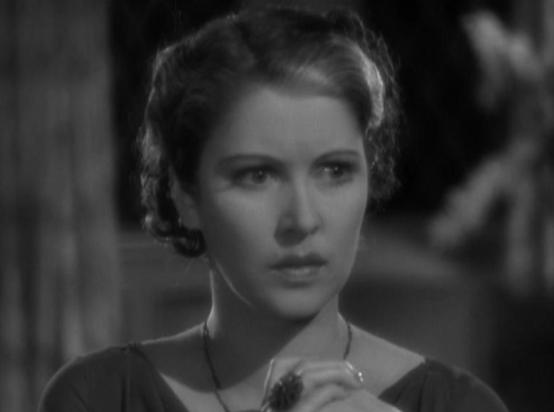


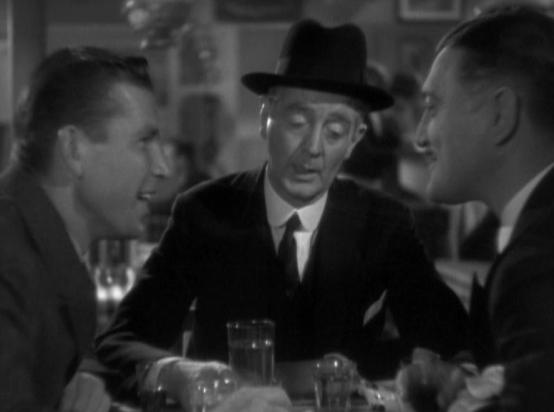
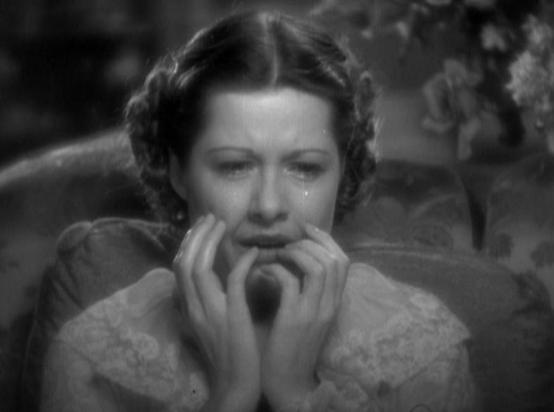

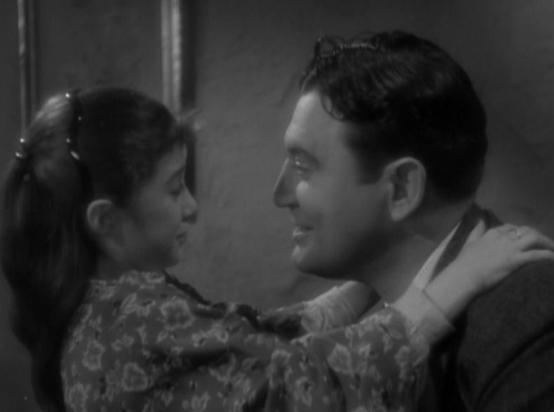

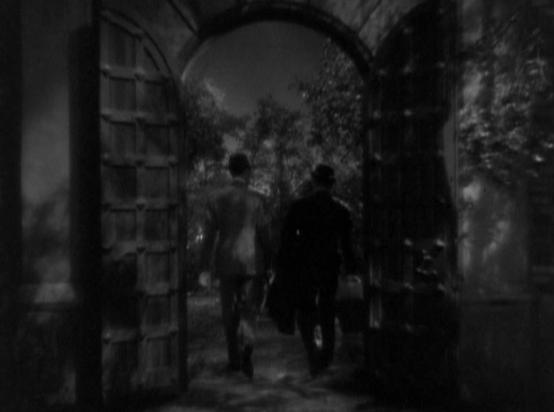

Leave a Reply